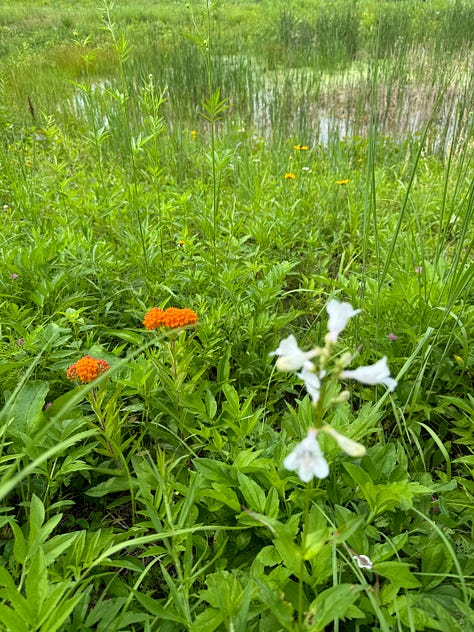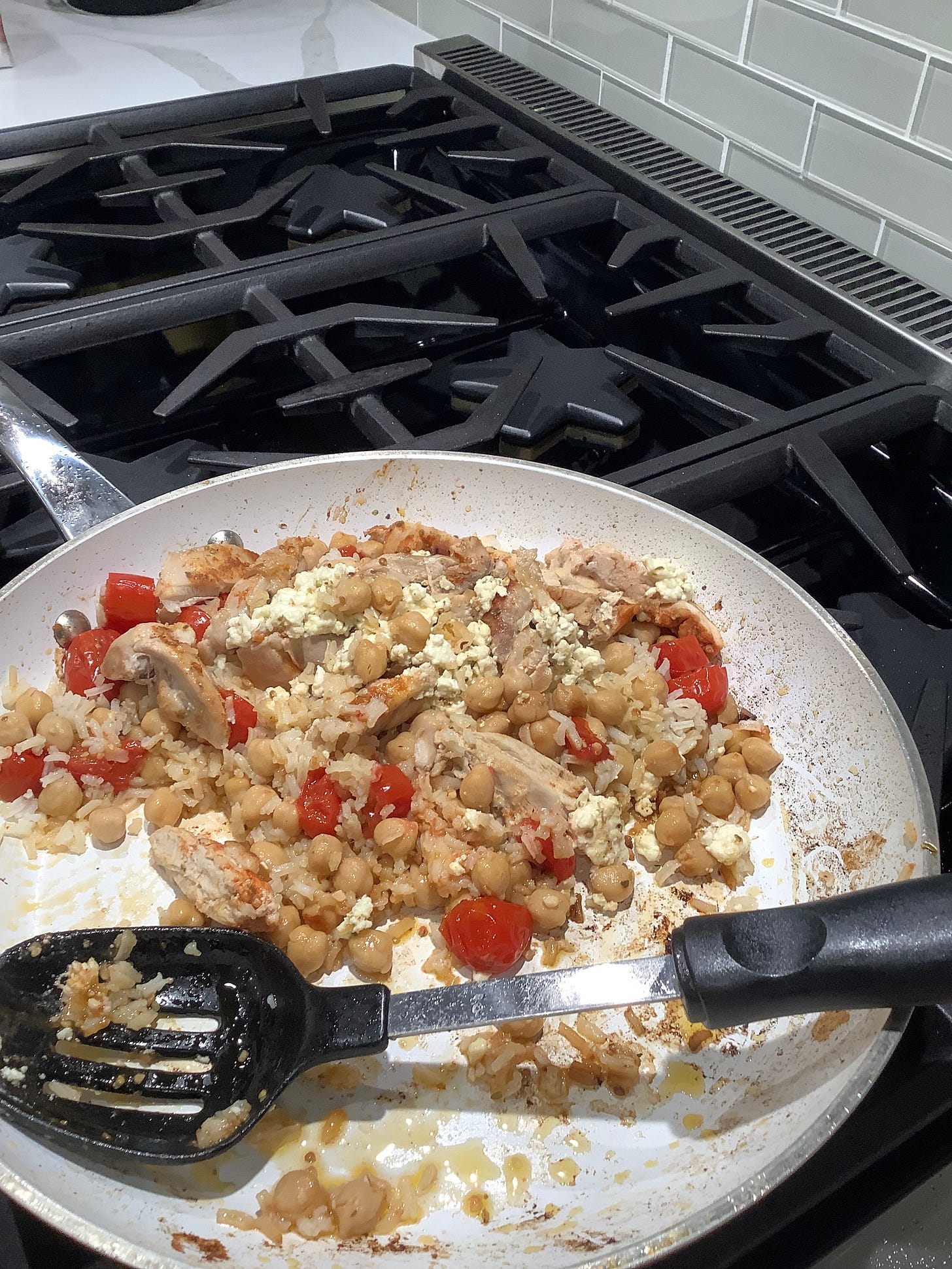
The storm system I had been watching all week swept through Friday night, with heavy rains, thunder, lightening, and strong winds. It rained until almost ten o’clock Saturday morning. Indications are we got almost 2 inches in Oakland County. Toledo got almost 3 inches. (It sounds like more in metric: We got almost 50 mm and Toledo got almost 80! Still having trouble thinking of rain metrically.)
The Sisters Race was wisely postponed, which is why I had been watching so closely. This was a powerful front that moved through, not a good time to be out on Lake Erie.
The line of storms from this system runs up the Ohio River Valley through New York State up through Canada and the St. Lawrence River Valley, to the Labrodor Sea almost to Greenland. At least the farmers should be happy. A good soaking rain this time of year can make the crop, as long as the strong winds don’t knock down your wheat.
When we lived on the farm in Ohio we had fields of corn and beans and sometimes wheat practically out our back door. We always knew how the corn and beans and wheat were doing. It didn’t matter if you were a farmer or not. Everyone watched the weather because so much was dependent on it. But as the size of the farms became so huge, fewer people were as deeply affected by the price of corn or beans as they used to be. We still watch the weather and the crops here in the Midwest, no matter how big the farms are. Especially if you grew up on a farm or lived in the country. Everyone feels better when a rainstorm sweeps through this time of year, sometimes saving the crop.
My friend Jane, who writes Jane’s Substack commented on my story Picking Blackberries that maybe the French had it right by “keeping their small, unproductive, loss-making, unprofitable, inefficient and utterly charming tiny family farms so people could stay on the land that’d been in their families for hundreds of years and so France could stay distinctively French.” Interesting. Wow, wouldn’t that have been something.
The chances of that happening here in the USA, in my opinion, were slim and none. Those hungry Settlers from the other side of the Appalachian’s, and from Switzerland, Germany, England, Ireland, Poland, Italy, yes and France, weren’t going to let anyone out-farm them. You bought as much land as you could, then bought some more. If the neighbor got a nice team of horses, or later, a bigger tractor, or had more cows or sheep, and you could match or exceed him, you did so, quietly. (Kids can do and DID do a lot of work on the farm, by the way.) And if there wasn’t enough land around, you married your sweetheart and moved further west where you could plow to the horizon. The tide of immigrants and the growth of the population was unstoppable. When we got as far west as the Columbia River we drilled wells for water, or dammed up another river for irrigation.
Old Joke:
Q: Who dammed that River?
A: God dammed that River!
I know it’s corny but my kids used to love it!
Anyway, getting back to the size of our farms now, I think it was inevitable, and not necessarily bad, that farms have become mechanized and larger. The labor breaking work that our fathers and mothers and grandparents did on the farm (and that some of US did too!) could be brutal and dangerous. They were killed by bulls, run over by tractors, suffocated in silos. And the hours were (and are) awful. Given the choice in my opinion there are few people today who would really want to go back to those back breaking times, no matter how fondly we sometimes remember the days as magical.
It sure was nice, though, to walk the fence rows for berry picking and hunting when I was a kid. Kicking up a bunch of bobwhites with your dog along a snowy fence line is high up on my memory list, along with riding on a hay wagon baling hay or, even better, baling straw! (Straw is a lot lighter than hay.)
And when the summer storms sent us careening to the barn with the last wagon load of hay swaying precariously, stacked too high, our faces sweat-streaked and dirty, we laughed as the storm beat on the barn roof, the hay safe from the rain.
I don’t want to demean the French Farmer, however. There were historical differences in how they acquired their land, and the specific plot of land they were tied to was truly their only means of survival for many many centuries, first as serfs through the Middle Ages, then no doubt as tenant farmers, until the feudal estates were broken up. The farm was truly their means of survival, and the land was scarce. It was hard for them to leave this behind or sell it off to the highest bidder.
Plus they had Grey Poupon. Speaking of food …
Friday night’s dinner was voted “Best Meal Ever Nana!” Her Greek Chicken and Lemon Rice, described in “Sunday Share”, linked here if you didn’t get it earlier, was superb. (BTW I was also told that my grilled chicken is “really good too Papa!”)
I was able to get a walk in Saturday afternoon, regardless of the mud. The wild flowers are coming on nicely.



Today we are heading to Kensington Metropark. I am hoping to have some nice pictures to share tomorrow.
Hope you are having a wonderful weekend~!
Have an opinion on the family farm, or if it would have been possible to keep our farms small? I’d love to hear your thoughts in the comments!




i still laugh at any dam that god damned!
I am reading an interesting book (the anxious generation) which was saying the decline in danger is not necessarily good for the adolescent brain. Maybe throwing them on the family farm for the summer would be beneficial!
Loved this. Can kind of feel the sunshine. But no,I would not want to BE a farmer or do Agricultural Work. Not that thankfully I'm expected to. I wish I'd kept a record of the name of the author of the book I read about how the small family farms of USA were deliberately destroyed by the financial institutions. He grew up in an archetypal Hillbillies type community where no one ever had any money but they all helped each other out and really bartered for what they needed. This author wasnt idealizing that life,though him being a little kid it was the most fun with loads of cousins all around to play with. It was only as he grew up he realised how tough it was for his parents and other adults. He was smart and in some innate way knew that farming wasnt the way to go and he became an academic,at the time he wrote the book,a professor at a university in some place like Tennessee or Virginia that sort of area. So he knew what he was describing. I wish I'd kept a note of it.